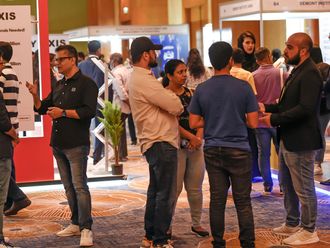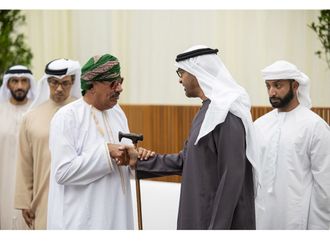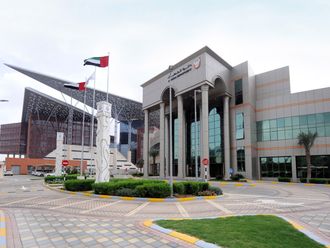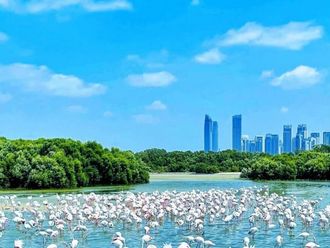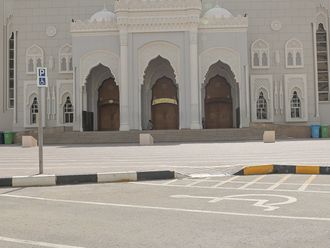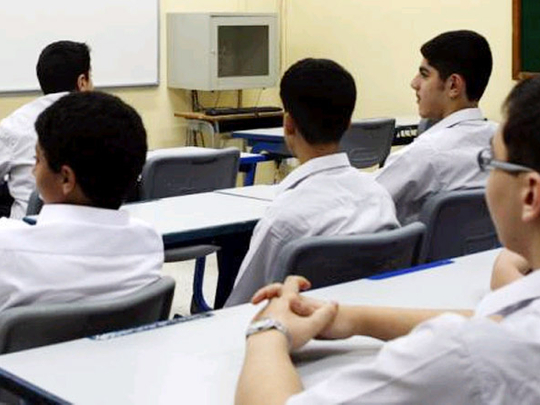
Dubai: Dubai's education authority chief, Dr Abdullah Al Karam said Thursday that the future of education relies on the private sector.
Private education is more efficient, provides better customer service, and while it may come at a higher cost, this cost is distributed across the system rather than centralised, said Al Karam, the Director-General of the Knowledge and Human Development Authority (KHDA).
He added that the increasing number of private schools and number of students enrolled continue to grow around the world.
"In Dubai, private school enrolments have more than doubled over the past 10 years while public school enrolment have actually declined."
Al Karam was speaking at the International and Private Schools Education Forum, organised by the KHDA at the World Trade Centre.
The one-day conference looked at the role the private sector can play in delivering and improving education across the Middle East, and acting as a catalyst for raising standards in government schools.
Five factors
Al Karam said that reform in the education sector usually involves five factors — teacher training, curriculum development, development of school leaders, new infrastructure and introduction of technology.
"But, these pose a high cost to the government and are reliant on dealing with troublesome labour issues."
He stressed that Dubai is tackling the issue uniquely by focusing on improving quality and raising standards in private schools.
"Our focus is on holding schools accountable and being transparent about what we have find so that parents can make an informed choice about schooling. We are encouraging schools to be in the business of educating their students."
Enrolment
He stressed that the upward trend in private school enrolment around the world is projected to continue.
In OECD (Organisation for Economic Co-operation and Development) countries, private school enrolment is increasing at more than twice the rate at public schools. In countries like Hungary, New Zealand, Poland and Sweden, the school enrolment situation is similar to Dubai's.
In developing countries, Unesco statistics show a 58 per cent growth in private school enrolment in primary schools compared with just a 10 per cent growth in similar public schools.
Pioneers, not profiteers, needed
UAE needs pioneers not profiteers to create further opportunities in the education market, and help build the vision of His Highness Shaikh Mohammed Bin Rashid Al Maktoum's knowledge-based economy, Ziad J Azam, CEO of Taaleem, Dubai's second largest private education provider, said, outlining the opportunities and threats of investing in the sector.
The estimated total population of Dubai in 1953 was 20,000, and had one formal school with six teachers and 230 students. Today Dubai and Abu Dhabi have 670 schools (public and private), more than 36,000 teachers and more than 520,000 students, he said.
Quoting a recent study, conducted by Booz & Company, he said that Dubai and Abu Dhabi will experience a projected 54 per cent increase in student enrolment by the year 2020, and that the total market value of private education is projected to rise from $1.4 billion (Dh5.1 billion) today to between $2.84 billion and $3.87 billion by 2020.
"So, there is an opportunity for investment in education in UAE, as well as in GCC."
"Private for-profit initiatives will lead the development of this sector," Azam said. In the UAE and GCC, private schooling surpasses the public sector in volume, reach and appeal, he said, asking why else 58 per cent of Emirati students in Dubai choose to pay for their education when they are offered access to free schooling in public schools.
While there are ample opportunities, there are some possible threats to investments here too.
"Another downturn in the economy is one of the threats. With such a high proportion of expatriates working here, any downturn is quickly followed by a mass exodus as we witnessed before in 2008."


